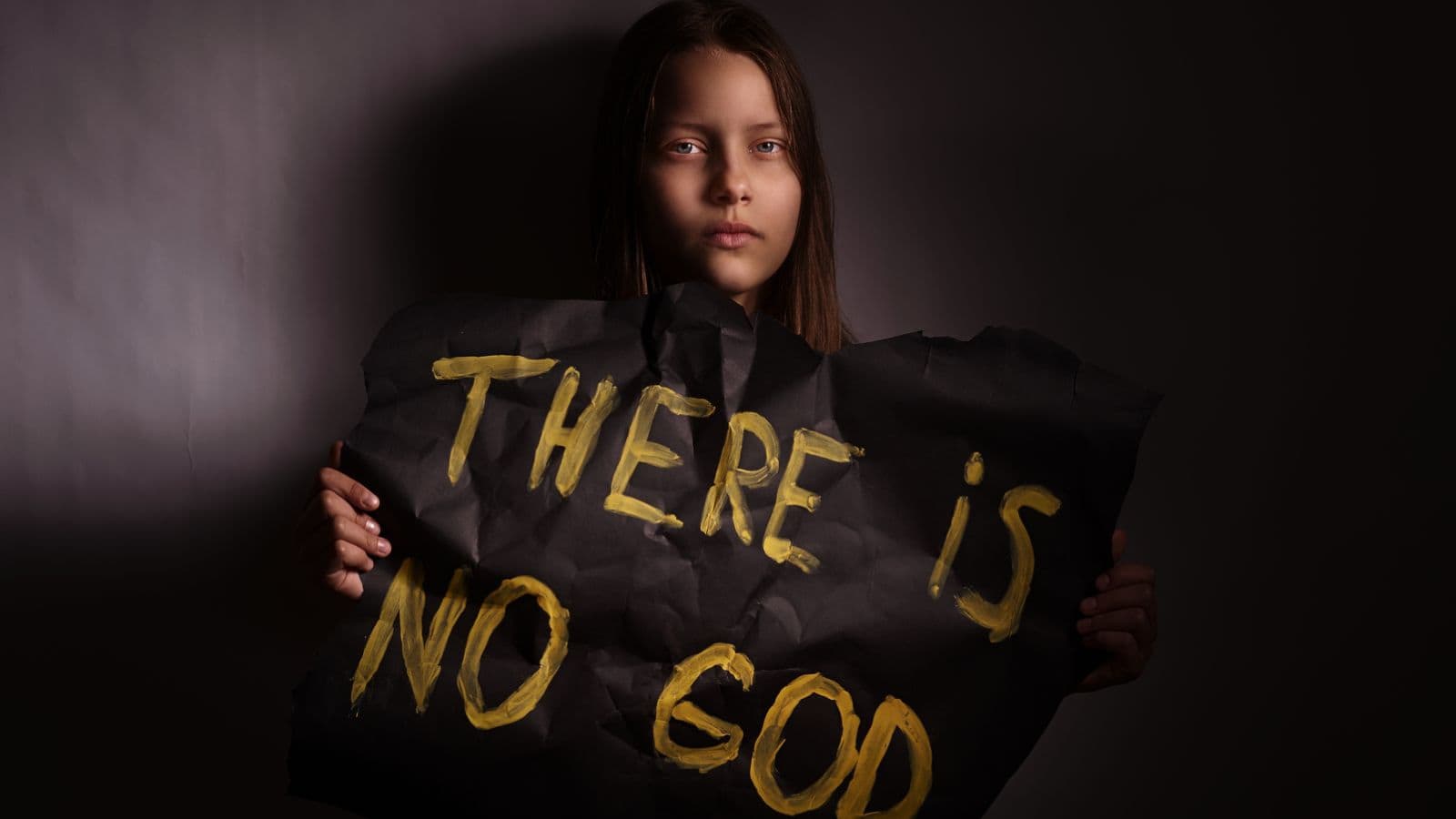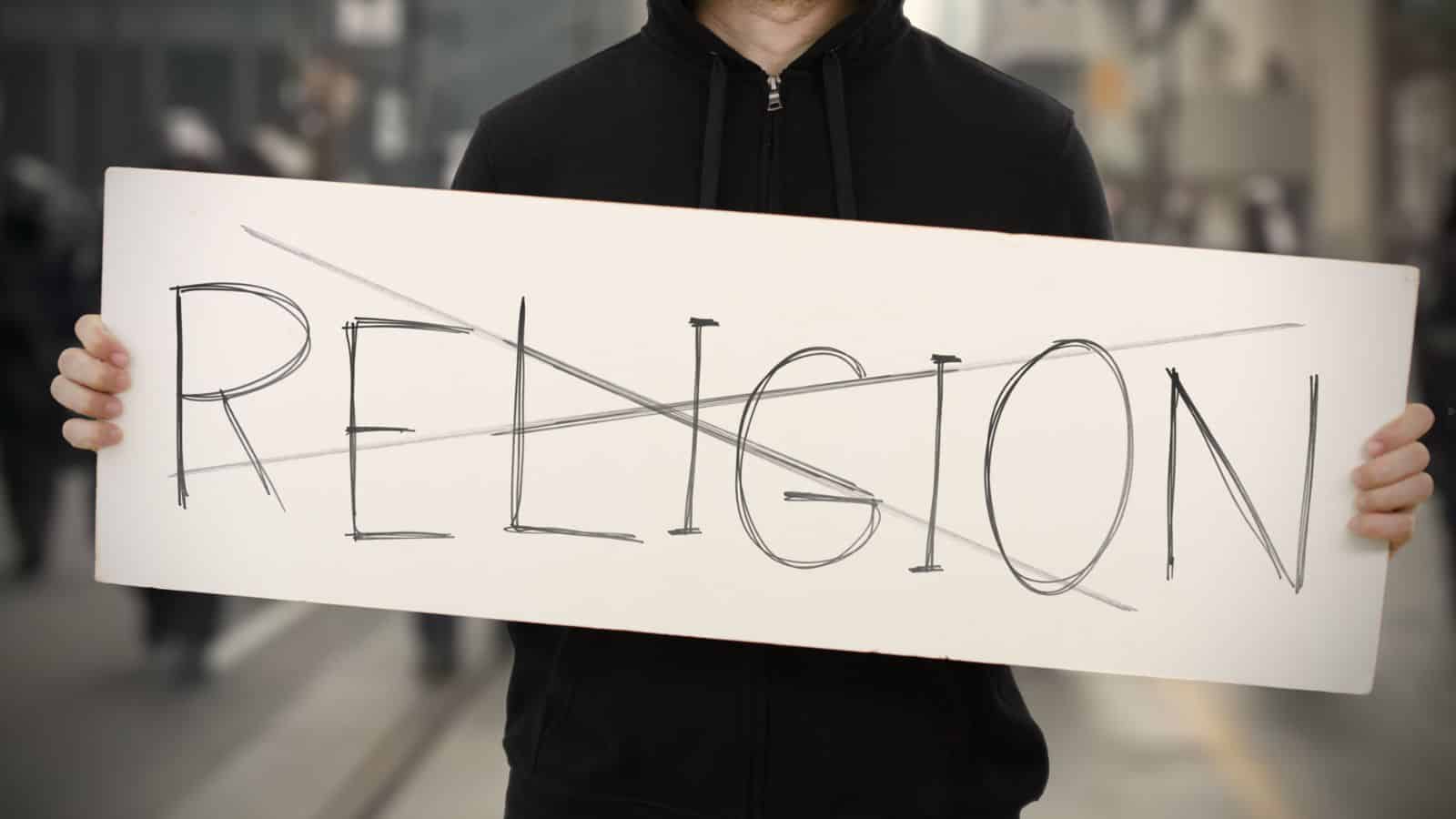Atheists are some of the least trusted people in America, but is there cause for that? The lack of trust often stems from inaccurate beliefs about what makes a person atheist; these are 17 misconceptions people need to let go of.
Atheists Have No Morals

Contrary to the belief that morality is exclusively derived from religion, atheists often adhere to ethical principles based on reason, empathy, and societal norms. A Pew study confirmed that “73% selected ‘it is possible to be moral and have good values without believing in God,’ while 25% picked ‘it is necessary to believe in God in order to be moral and have good values.’” Many atheists are committed to humanistic values, promoting actions that enhance well-being and minimize harm without reference to supernatural directives.
Atheists Are Angry at God

It’s logically inconsistent to be angry at something you don’t believe exists. Atheists may be critical of the concept of God or the impact of organized religion, but anger towards a deity isn’t part of their disbelief.
Atheists Are Always Certain There Is No God

Atheism isn’t necessarily a claim of certainty that no gods exist; it’s often simply the lack of belief in gods. Many atheists identify as agnostic atheists, acknowledging that while they don’t believe in a god, absolute certainty on such matters is elusive.
Atheists Lead Empty Lives

The lives of atheists can be rich and fulfilling, filled with love, art, and adventure. Community, family, and friendships are central to many atheists, providing a profound sense of fulfillment and happiness.
Atheists Worship Science

Scientific American says, “Science is one way of connecting with the mystery of existence.” While atheists generally support scientific methods as a way to understand the natural world, saying they “worship” science is like saying someone who enjoys music worships guitars. Science is a tool, not an object of worship.
Atheists Are Pessimists

A lack of belief in an afterlife can lead atheists to value this life even more. When one doesn’t believe there is anything after this life, it can prompt a focus on making the most of the here and now rather than pessimism about the future.
Atheists Hate Religious People

Disagreeing with religious beliefs isn’t the same as hating the people who hold them. Many atheists have religious friends and family members whom they love and respect deeply.
Atheists Are Trying to Undermine Society

Many advocate for secularism, the separation of church and state, which supports religious freedom for all rather than seeking to undermine societal values. The concept of rules in society is not solely based on religious dogma; most are created to keep order, which atheists have no issue with.
Atheists Are Devil Worshippers

It’s hard to worship something you don’t believe in. Atheists are no more likely to worship the devil than they are to believe in any deity.
Atheists Want to Ban Religion

Most atheists support freedom of religion and simply desire the same respect for their own beliefs, or lack thereof. It is far more likely for a religious person to have a bias against atheists being able to live as they wish than the other way around.
Atheists Think They Know Everything

On the contrary, atheism often stems from acknowledging not knowing everything and questioning what is traditionally accepted without evidence. Religions frequently stand on the firm belief that their version of God and the world are absolute facts.
Atheists Have No Sense of Wonder

Agnostics and atheists can and do experience feelings of transcendence, awe, and connection, which they may interpret through secular lenses rather than spiritual or religious ones. The complexity and beauty of the natural world can inspire deep emotional and aesthetic responses without attributing them to supernatural causes.
Atheists Are All Liberals

Political and ideological beliefs vary widely among atheists, who can be found across the entire spectrum of political thought. In one such example, Charles Cooke wrote in a National Review article, “I’d venture that much of what informs my atheism informs my conservatism also,” which just goes to show religion and politics don’t always influence each other.
Atheists Are Unpatriotic

Love for one’s country or culture is not contingent on religious belief. Atheists can be deeply patriotic, valuing their nations and contributing positively to society.
Atheists Are Less Compassionate

Compassion is a human trait that transcends religious boundaries. Atheists often participate in humanitarian efforts based on a belief in human solidarity and ethical responsibility. Taylor & Francis Online did a study of atheists and people from different religious backgrounds and found “Groups were highly similar in their reported well-being, empathy, and other personality scales, but differed strongly on scales assessing Spirituality and Magical Ideation, where atheists rejected the concepts of spirituality and magical beliefs.”
Atheists Can’t Experience True Love

Love is a universal human emotion experienced by people of all faiths and none. Atheists often form deep and lasting relationships based on mutual respect and affection.
Atheists Are Always Rational

Like anyone else, atheists can be irrational about some things; no one is completely logical all the time. Atheism simply reflects a specific stance on belief in gods, not a broader judgment of an individual’s reasoning capabilities.
Up Next: 17 Commonly Believed Myths About The Wild West That Are Actually False

The Wild West was a peculiar place to live in, for sure. But are the stories of gunslinging cowboys and superhero sheriffs true? Here are 17 myths about the Wild West you should stop believing today.
17 COMMONLY BELIEVED MYTHS ABOUT THE WILD WEST THAT ARE ACTUALLY FALSE
18 Signs Someone Has a Personality Disorder

Personality disorders are underdiagnosed because they’re often misconceived as people ‘being difficult.’ Society also tends to focus more on the symptoms of anxiety and depression that accompany personality disorders, neglecting the other signs. To promote understanding, here are 18 signs someone isn’t being difficult but has a personality disorder.
18 SIGNS SOMEONE HAS A PERSONALITY DISORDER
20 Reasons Why Older Couples Are Ending Their Relationships

As our society modernizes and normalizes separation for couples who feel unhappy or stagnated, even older couples are choosing to end their marriages in greater numbers. While staying “till death do us part” and spending your golden years with a life-long partner may be more traditional, here are 20 reasons why older people might now be choosing divorce instead.
